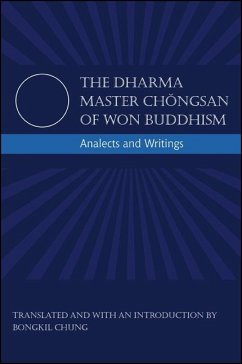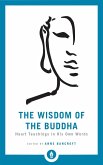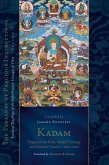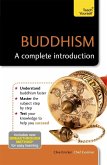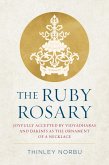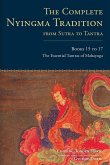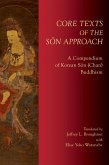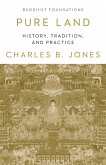Won Buddhism emerged in early twentieth-century Korea after a long period of anti-Buddhist repression. It is a syncretic tradition, a form of Buddhism strongly influenced by the Choson dynasty's Neo-Confucian ethical heritage and by Daoism. Seeking to deliver sentient beings from suffering and to create a just and ethical world, Won Buddhism stresses practical application of the dharma and service. It offers a vision of people as one family, morally perfected.
This book provides the first English translations of the writings of Chongsan (1900-62), the second dharma master of Won Buddhism, who codified the new religion's central doctrines. The translations here include Chongsan's discussion of Buddha-nature, described as a mind-seal and symbolized by the Irwonsang (a unitary circle); his synthesis of Confucian moral and political programs with Buddhist notions of emancipation from birth and death; and his expositions on realizing the ideal of all people as one family.
This book provides the first English translations of the writings of Chongsan (1900-62), the second dharma master of Won Buddhism, who codified the new religion's central doctrines. The translations here include Chongsan's discussion of Buddha-nature, described as a mind-seal and symbolized by the Irwonsang (a unitary circle); his synthesis of Confucian moral and political programs with Buddhist notions of emancipation from birth and death; and his expositions on realizing the ideal of all people as one family.
Dieser Download kann aus rechtlichen Gründen nur mit Rechnungsadresse in A, D ausgeliefert werden.

